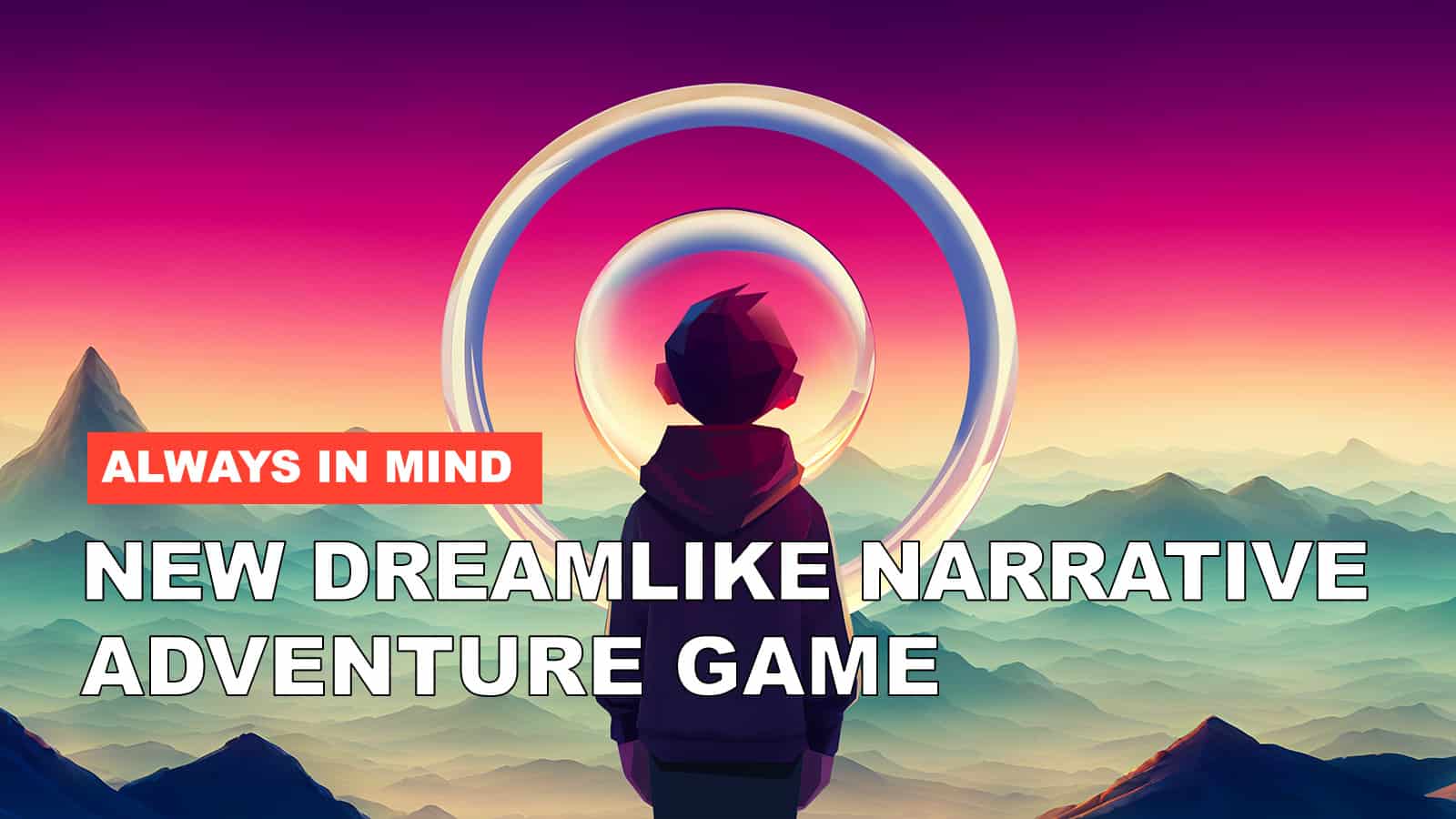Beyond the Button Mashing: The Enduring Allure of Narrative Adventure Games
In a world saturated with high-octane action, sprawling open worlds, and competitive multiplayer experiences, there exists a genre that quietly champions storytelling, atmosphere, and emotional resonance: the narrative adventure game. Often overlooked in favor of its more bombastic cousins, narrative adventures offer a unique and compelling experience, placing the player at the heart of meticulously crafted worlds, compelling them to unravel mysteries, forge relationships, and ultimately, shape their own destinies through carefully considered choices.
The roots of narrative adventure games can be traced back to the text-based adventures of the late 1970s and early 1980s, epitomized by titles like Zork and Colossal Cave Adventure. These games, reliant on parser-based interfaces and imaginative prose, tasked players with exploring virtual environments, solving puzzles, and interacting with characters solely through typed commands. While rudimentary by today’s standards, they laid the foundation for the genre’s emphasis on exploration, problem-solving, and the power of words to create immersive experiences.
The advent of graphical adventure games in the late 1980s and early 1990s, spearheaded by companies like Sierra Entertainment and LucasArts, marked a significant evolution. Titles like King’s Quest, Space Quest, Monkey Island, and Maniac Mansion replaced text parsers with point-and-click interfaces, vibrant visuals, and memorable characters. These games prioritized humor, charm, and clever puzzle design, cementing the genre’s popularity and establishing many of the tropes and conventions that continue to influence narrative adventures today.
However, the rise of 3D gaming in the late 1990s and early 2000s led to a shift in focus towards action and exploration. Adventure games, with their slower pace and emphasis on dialogue and puzzle-solving, gradually faded from the mainstream, relegated to a niche audience. Despite this decline, the genre refused to die, kept alive by dedicated developers and a loyal fanbase who appreciated the unique experiences it offered.
The modern renaissance of narrative adventure games can be attributed to several factors. The rise of indie game development has allowed smaller studios to experiment with innovative storytelling techniques and gameplay mechanics, free from the constraints of mainstream publishers. The accessibility of digital distribution platforms like Steam and GOG has made it easier for these games to reach a wider audience. And perhaps most importantly, a growing number of players are seeking out experiences that prioritize narrative depth, character development, and emotional engagement over spectacle and instant gratification.
This resurgence has seen a diversification within the genre, with developers pushing the boundaries of what a narrative adventure game can be. Telltale Games, with their episodic adaptations of popular franchises like The Walking Dead and Batman, revolutionized the genre by focusing on player choice and its impact on the narrative. Their games emphasized difficult moral dilemmas and complex character relationships, forcing players to confront the consequences of their actions and forge their own unique stories within established universes.
Quantic Dream, known for titles like Heavy Rain, Beyond: Two Souls, and Detroit: Become Human, has pioneered cinematic storytelling in video games, utilizing advanced motion capture technology and branching narratives to create immersive and emotionally charged experiences. Their games explore complex themes such as grief, loss, identity, and the nature of humanity, challenging players to confront uncomfortable truths and question their own moral compass.
Other developers have taken a more experimental approach to the genre. Dontnod Entertainment, with their breakout hit Life is Strange, tackled themes of teenage angst, social anxiety, and time travel, creating a poignant and relatable story that resonated with players of all ages. Campo Santo, with Firewatch, delivered a stunningly beautiful and emotionally resonant narrative about isolation, connection, and the complexities of human relationships.
What sets narrative adventure games apart from other genres is their emphasis on agency and consequence. Players are not simply passive observers of a pre-determined story; they actively participate in shaping the narrative through their choices and actions. Every dialogue option, every decision, every puzzle solved (or unsolved) can have a ripple effect, altering the course of the story, impacting character relationships, and ultimately determining the ending.
This sense of agency is crucial to the immersive experience that narrative adventure games offer. By placing the player in the driver’s seat, these games allow them to connect with the characters and the world on a deeper level. Players become invested in the story, invested in the characters, and invested in the outcome. They feel a sense of ownership over the narrative, making the experience more personal and meaningful.
Furthermore, narrative adventure games often explore complex and thought-provoking themes that are rarely addressed in other genres. They tackle issues such as morality, ethics, identity, social justice, and the human condition, prompting players to reflect on their own values and beliefs. By engaging with these themes in a safe and interactive environment, players can gain new perspectives, develop empathy, and expand their understanding of the world around them.
The puzzle-solving aspect of narrative adventure games also contributes to their appeal. Puzzles are not simply obstacles to overcome; they are often integral to the narrative, providing clues, revealing secrets, and challenging players to think critically and creatively. Solving a puzzle can be a moment of profound satisfaction, not just because it allows the player to progress in the game, but also because it deepens their understanding of the story and the world.
Looking ahead, the future of narrative adventure games looks bright. The genre continues to evolve and innovate, with developers experimenting with new technologies, storytelling techniques, and gameplay mechanics. Virtual reality (VR) offers the potential to create even more immersive and interactive experiences, while advancements in artificial intelligence (AI) could lead to more dynamic and responsive characters.
However, the core appeal of narrative adventure games will always remain the same: the power of storytelling to transport players to another world, to connect them with compelling characters, and to challenge them to think, feel, and make meaningful choices. In a world that often feels overwhelming and chaotic, narrative adventure games offer a respite, a chance to escape into a meticulously crafted world and engage with a story that matters. They are a reminder that video games can be more than just entertainment; they can be a powerful medium for exploring the human experience and fostering empathy and understanding.
In conclusion, narrative adventure games are more than just point-and-click puzzles and branching dialogues. They are interactive stories that empower players to shape their own destinies, explore complex themes, and connect with characters on a deeply emotional level. While they may not always grab headlines or top sales charts, they offer a unique and enduring appeal that continues to resonate with players who appreciate the power of narrative and the art of interactive storytelling. They are a testament to the enduring power of stories to move, challenge, and inspire us.


